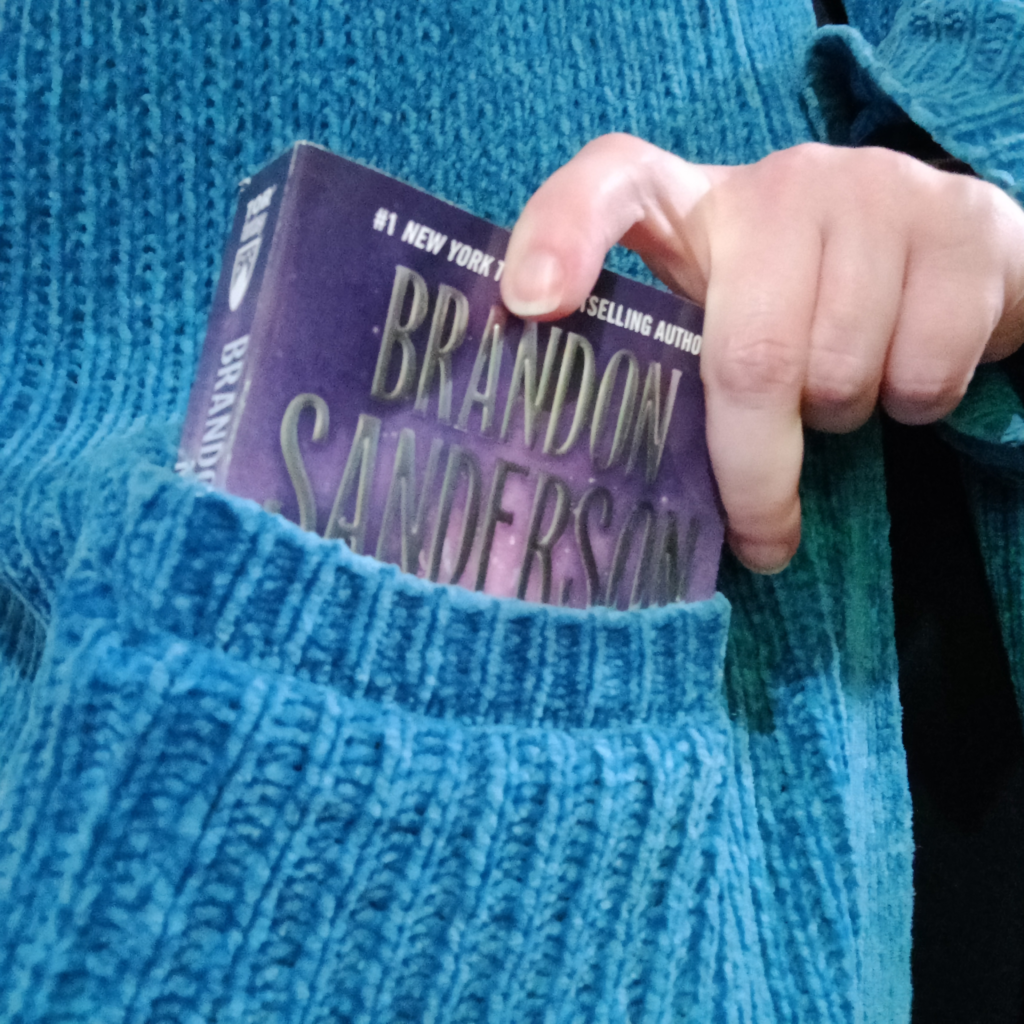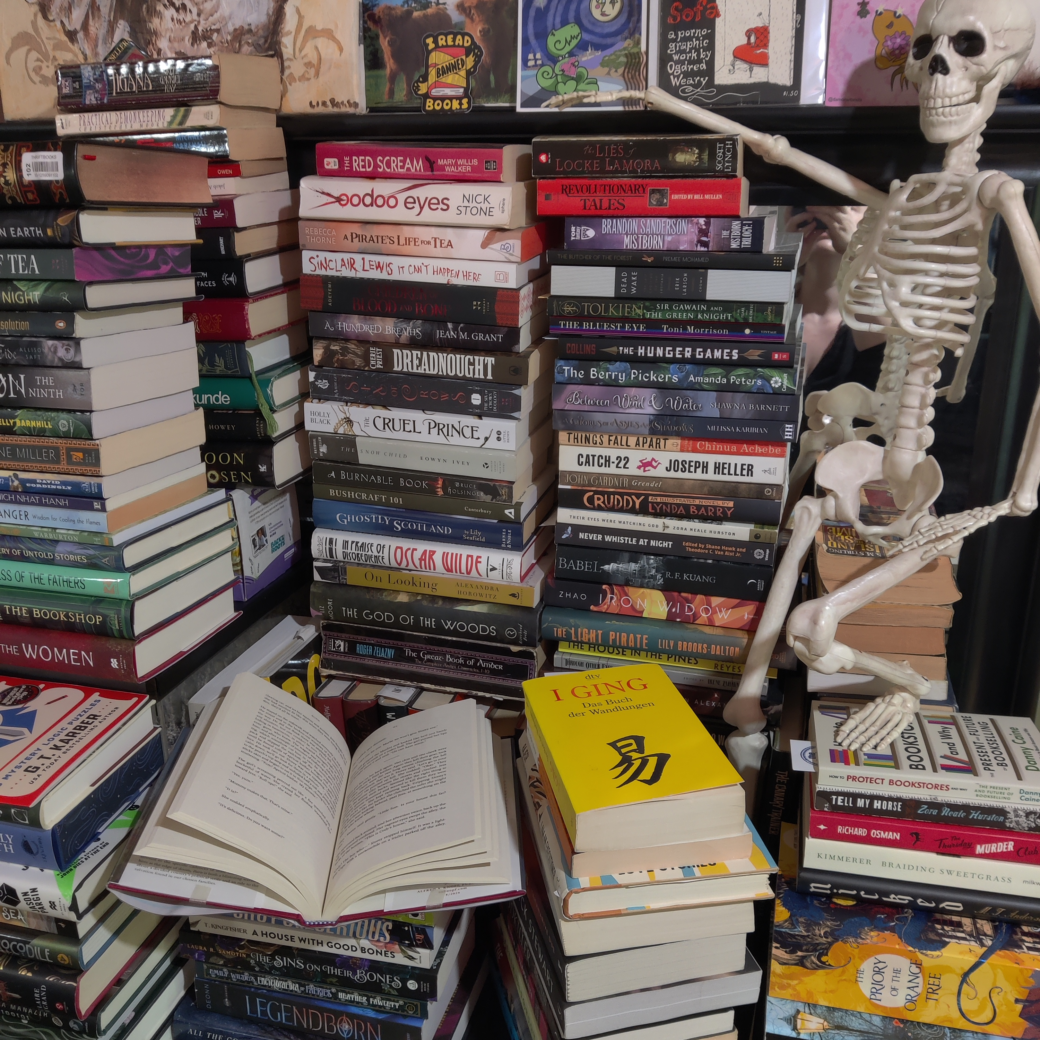MAY 27, 2025
Lately, I’ve heard a lot of people admit that they’ve found themselves in a reading slump. They can’t find the motivation to pick up a book, or if they do, they can’t keep themselves focused on the words. It doesn’t surprise me. We’re living in an increasingly unpredictable world and constantly besieged by distractions. Even when they don’t interrupt us directly, the stress they cause can decrease our ability to focus and retain information. Of course that’s going to make reading feel harder. And that’s after we’ve found the time to sit down and open the book.
I’ve been able to offer advice to those who have expressed their reading slump to me personally. It wasn’t all that long ago that I felt trapped in a reading slump of my own. It took me more than a year to finish a single book. Now, I read 2-4 books per week on average. The same tricks that worked for me have worked for others too, and I learned a few techniques that have worked for others. I’ve compiled all that advice here, and hopefully it will reach more people who need it. Not every tip will help every person, but if you’re currently stuck, I’m sure there’s at least one below that fits the workings of your brain.
Filter Out Distractions
We’ll start by getting the obvious out of the way. If you’re having difficulty focusing, odds are you’ve already tried reducing distractions. If you haven’t, you might want to consider it. It doesn’t need to be extreme measures. It can be as simple as putting your phone on Do Not Disturb mode and perhaps putting on headphones to tune out unnecessary background noise.
Then again, there are times when the distractions aren’t external. Some of us could even find a way to get distracted if we were locked in a sensory deprivation chamber. If you find your mind wandering to your responsibilities and what you feel like you “should” be doing in the moment, it can help to put your reading time on your daily schedule. If that time is set aside specifically for reading, it’ll be easier to convince your brain that’s what you’re supposed to be doing.
Have trouble putting your phone down even when it’s silent? There are lots of apps out there that can help you manage your screen time and usage. The one I use personally is Forest. I set a timer for how long I’d like to put my phone down, and during that time, the app grows a tree. Once the timer counts down, the tree is planted in my digital forest. However, if I open another app before the timer has finished, then the growing tree dies. It still gets planted in my forest, so that I’m reminded of my failure every time I see it. It’s harsh, but for me it’s effective.
Always Bring Your Book
Another common struggle for those getting back into reading is finding the time to do it. My best advice for that is to throw out the notion that you need extended blocks of time. Sure, uninterrupted time to focus can help you read more or read faster, but it’s not the only way to fit stories into your day. I’ve found that when I can access my book as easily as my phone, the moments where I would previously start doomscrolling reflexively are now filled with reading. If I’m waiting for an appointment or standing in the grocery checkout, it’s easy to pull a book out of my pocket or purse. Even if I don’t think I’ll have a chance to pull it out, I bring a book with be wherever I go. I’m usually surprised with a couple minutes here or there. Typically, this method will only get me through a couple paragraphs to a few pages, but all those words add up, and I feel better than I would if I had stared at my screen instead.

Set the Your Goals Low
Now that we’ve handled the logistics of getting your book in front of you, let’s look at some of the mental hurdles. The first thing to look at is the reading goals that you’re setting for yourself. It’s important make them more than simply achievable. Make them easy. Set your goals low enough that it still feels possible to squeeze them in on your most hectic day. I started with a goal of five pages per day to get out of my reading slump. Considering the rate at which I read, that’s about five minutes of my time. You can set your goals even lower than that. Reading only one page or one paragraph is still progress.
Consistently meeting goals can increase motivation. It feels good to succeed, no matter how small that success may be. You’ll likely find as I did that once you’ve reached your daily goal, you’ll often keep going beyond that point. Once you’ve built your routine back up and it feels stable, you can consider increasing your goal then. Avoid the urge to increase it too soon. Days that we fall short can have the opposite effect. It’s common to feel disappointment when that happens, even when you know the number is entirely arbitrary. You also don’t want it to feel like a chore if you’ve left it until the end of a long day. Rather, you want to be able to get excited about retreating into your book. Otherwise you’ll never find your way out of a reading slump.
Keep Your Reads Short & Simple
Another simple trick to increase your reading motivation is by taking advantage of dopamine spikes triggered by completing a task. Your brain is wired to reward you every time you finish a story or a chapter. Reading a book with shorter chapters for instance, will reward you more frequently with these mood boosts than a book with longer chapters if they have the same number of pages.
This is helpful if you’re working with a shortened attention span as well. Sustained focus can become exhausting. You can increase your stamina for it by completing more short bursts of attention, then gradually lessening the breaks between them. Short stories, essay collections, or poetry anthologies are all examples of shorter content forms that can help. Of course, any book can be read a single sentence at a time, but having obvious break points prevents the need to re-read to remember where you left off.
Switch Formats
Similarly, it might help to make a switch to graphic novels and reduce the amount of text. Letting images do some of the heavy lifting in the story’s delivery exercises a different area of your brain while you read. This may take pressure off of the area that processes text in a way that lessens the struggle for you.
Audiobooks are another great way to consume stories. For much of human history, oral tellings were the primary means for spreading stories: both fiction and non-fiction alike. Plenty of people still prefer to get their books in an audio format. Reasons range everywhere from visual difficulties to daily commute length. Even more readers enjoy a mixture of text and audio, depending on their mood or other circumstances.
There’s also a trend going around on some social media called “immersive reading.” For this, you’ll need a print copy and an audio copy of the same book. (Your local library can hook you up with one or both of these.) Put your headphones on for the audiobook, and let your eyes follow along on the text while it’s read to you. Some people have found that using more of their senses this way puts them more fully into the experience, creating deeper focus and filtering out distractions.

Enjoy the Content
Whatever type of book you decide on, what’s most important is that it’s one you’ll enjoy. It’s nearly impossible to climb out of a reading slump if you’re turning it into a chore. Choose books that you can get excited about. Try re-reading one of your all-time favorites, or indulging in a special interest. Humorous books will often do the trick for me. Anything by Terry Pratchett, Douglas Adams, or Jason Pargin will typically get me laughing out loud. It’s no secret that I’m a big fan of dark books, but they won’t help me out of a reading slump on its own. I’ll get better results if there’s at least some slapstick silliness mixed in. That’s me personally. Find what works best for you.
Don’t Forget to DNF
If you’re not enjoying the book, give yourself permission to not finish. You can get back to it later once you’re in the swing of it again. In case I haven’t said it enough already, it’s crucial that you don’t feel like you have to force yourself to read. Any unpleasant experiences in this regard will reinforce the reading slump, making it harder to get out of. It’s not the time to push through because “it’s a classic” or “the second book is supposed to be better.” If you’re not excited for it, then stop. Put it down and find something else. This is supposed to be fun.
Give Yourself Grace
Lastly and probably most importantly, give yourself grace. Some days will be better than others. Celebrate the wins, even the tiny ones. When you don’t succeed, give yourself patience instead of punishment, support instead of shame. A common cause of reading slumps is because of burnout. If you’ve made commitments to book clubs and ARC or beta reads, it’s a good idea to take a step back during a slump.
Putting additional pressure on ourselves is rarely as helpful as we want it to be when we’re already under stress. Make sure there’s enough space for you in your hobby (or lifestyle, however serious you want to be). Let yourself appreciate the stories you like at whatever pace comes naturally to you.
I Wish You Happy Reading ♥
Do you have any tips or tricks of your own that I didn’t cover here? Share them below so that they might help somebody else!
Too much text for right now? Here’s the video summary:



